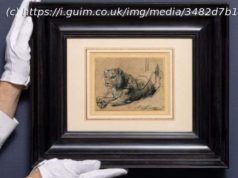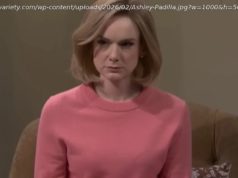Also: Readerly Tommys, a fainting dance craze, and more.
W ere WWI soldiers great readers or “barely literate”?
A. N. Wilson reviews a life of Francis of Assisi in verse.
Stan Lee has died. Brian Michael Bendis remembers the Marvel visionary in a comic drawn by Bill Walko.
The fainting dance that’s taking South Africa by storm.
Did you know that New York City used to have 47 public baths? John Byron Kuhner reviews a book on the influence of Classical architecture on New York .
A group of international scholars are planning to launch a Journal of Controversial Ideas, Tom Bartlett reports .
Herbert London has died: “London was the president of the Hudson Institute, a conservative research group in Washington, from 1997 to 2011; a senior fellow at the Center for the American University at the Manhattan Institute; chairman of the National Association of Scholars; and founder of the London Center for Policy Research.”
Amazon will build not one but two new headquarters on the East coast —one in New York City and one in Crystal City, Virginia.
Helen Andrews reviews Lust on Trial: Censorship and the Rise of American Obscenity in the Age of Anthony Comstock .
Essay of the Day:
Copyrights and patents are important, but the term “intellectual property” is “nonsensical and pernicious,” Samir Chopra argues in Aeon:
“Stallman is a computer hacker extraordinaire and the fieriest exponent of the free-software movement, which holds that computer users and programmers should be free to copy, share and distribute software source code. He has argued that the term ‘intellectual property’ be discarded in favour of the precise and directed use of ‘copyright’, ‘patents’, ‘trademarks’ or ‘trade secrets’ instead – and he’s right. This is not merely semantic quibbling. The language in which a political and cultural debate is conducted very often determines its outcome.
“Stallman notes that copyright, patent, trademark and trade secret law were motivated by widely differing considerations. Their intended purposes, the objects covered and the permissible constraints all vary. In fact, knowledge of one body of law rarely carries over to another. (A common confusion is to imagine that an object protected by one area of law is actually protected by another: ‘McDonald’s’ is protected by trademark law, not copyright law, as many consumers seem to think.)
“Such diversity renders most ‘general statements… using “intellectual property”… false,’ Stallman writes. Consider the common claim that intellectual property promotes innovation: this is actually true only of patent law. Novels are copyrighted even if they are formulaic, and copyright only incentivises the production of new works as public goods while allowing creators to make a living. These limited rights do not address innovations, which is also true of trademark and trade secret law. Crucially, ‘intellectual property’ is only partially concerned with rewarding creativity (that motivation is found in copyright law alone). Much more than creativity is ‘needed to make a patentable invention’, Stallman explains, while trademark and trade secret law are orthogonal to creativity or its encouragement.
“A general term is useful only if it subsumes related concepts in such a way that semantic value is added. If our comprehension is not increased by our chosen generalised term, then we shouldn’t use it. A common claim such as ‘they stole my intellectual property’ is singularly uninformative, since the general term ‘intellectual property’ obscures more than it illuminates. If copyright infringement is alleged, we try to identify the copyrightable concrete expression, the nature of the infringement and so on. If patent infringement is alleged, we check another set of conditions (does the ‘new’ invention replicate the design of the older one?), and so on for trademarks (does the offending symbol substantially and misleadingly resemble the protected trademark?) and trade secrets (did the enterprise attempt to keep supposedly protected information secret?) The use of the general term ‘intellectual property’ tells us precisely nothing.”
Read the rest.
Video: Swiss loggers on Lake Ägeri
Poem: Timothy Murphy, “Putting Back to Sea”
Get Prufrock in your inbox every weekday morning. Subscribe here.






